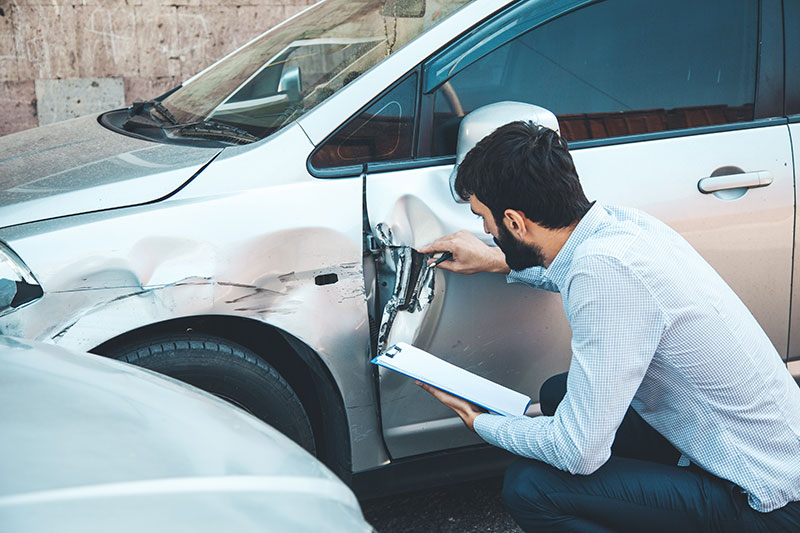Among the evidence collected during the Discovery phase, a car accident deposition plays a key role. It is a formal question and answer session regarding the car crash that led to the plaintiff’s injury. The deposition helps lawyers obtain a comprehensive understanding of the events to establish the victim’s innocence and justify their entitlement to compensation. As a medical peer review company assisting personal injury attorneys with deposition summary services, we know that the deposition provides attorneys representing the plaintiff as well as the defense an opportunity to listen to each person’s account of the events, evaluate the value of the testimony, and determine if a particular witness can influence a judge or the jury. A deposition can last from 30 minutes to many hours, depending on the complexity of the case.
Transform your deposition transcripts into strategic insights!
Key Differences between a Deposition and a Trial
Deposition vs. Trial
| Deposition | Trial | |
| Nature | Informal and conducted outside the courtroom | Formal legal proceedings held in a courtroom |
| Purpose | Gather pre-trial evidence, testimony, and information | Determine legal liability and reach a verdict |
| Setting | Typically takes place in a lawyer’s office | Typically takes place in a court room |
| Participants | Involves the deponent (witness), attorneys, and a court reporter | Includes the judge, jury, attorneys, witnesses, and the accused |
| Oath | The witness is sworn in and testifies under oath | All participants, including witnesses, testify under oath |
| Decision-making | No final decisions are made; used for discovery | A verdict is reached by the judge or jury |
| Format | Q&A format with attorneys questioning the witness | Formal proceedings with opening statements, examinations, and closing arguments |
Depositions are usually held at one of the attorneys’ offices or at a neutral setting. They are less formal than a trial. Just as for a trial, depositions are recorded with the help of a court reporter. The deposed person’s statements could be used in case the lawsuit ends up in a trial. Compared to the questions asked in a courtroom, deposition questions are typically more wide-ranging. Though the representing attorney can make objections to questions, the person being deposed will have to answer them anyway.
The deposition is significant because it helps the attorney understand what exactly a witness remembers about the accident. The attorney can also have a clear idea about the conclusions arrived at by an expert regarding the specific circumstances around the car accident.
Questions Asked During a Car Accident Deposition
During a car accident deposition, a series of questions are typically asked to gather detailed information and establish the facts of the case. While the specific questions may vary based on the circumstances, here are some common ones:
Personal Information:
- What is your full name, address, and contact information?
- Can you describe your occupation and work history?
Accident Details:
- Where and when did the accident occur?
- What were the weather and road conditions at the time?
- Can you describe the events leading up to the accident?
Vehicle Information:
- What type of vehicle were you driving, and can you provide its details?
- Were there any issues with your vehicle before the accident?
Injuries and Medical History:
- Did you sustain any injuries in the accident?
- Have you experienced similar injuries or medical issues in the past?
Police and Medical Reports:
- Were the police called to the scene, and did they file a report?
- Have you sought medical attention, and can you provide details of your treatment?
Witnesses:
- Were there any witnesses to the accident, and if so, can you identify them?
- What statements did witnesses make, if any?
Driving Conditions:
- Were you obeying traffic laws at the time of the accident?
- Were there any distractions while you were driving?
Communications:
- Did you communicate with the other party involved in the accident?
- Did you make any statements or admissions at the scene?
Post-Accident Actions:
- Did you take photographs or videos at the scene?
- Did you exchange information with the other party?
The plaintiff’s attorney will ask questions to try to find proof that the defendant was at fault for the accident. The questions the defendant is asked may vary based on the particular facts of the case.
Role of Medical Records in a Car Accident Claim
To prove negligence in a car accident case before a jury or judge and substantiate the claim, plaintiffs or their legal representatives must compile essential evidence, primarily from medical records. Comprehensive documentation, including paramedic/ambulance records, emergency room/clinic records, follow-up appointment records, physical therapy records, and imaging studies like X-Rays, CT Scans, and MRIs, serves as compelling evidence. This thorough record collection is important for victims seeking fair compensation in a car accident claim or aiming to succeed in a lawsuit.
Deposition Summary a Valuable Tool in Trial Preparation
The deposition summary prepared by a medical record review company is very helpful for attorneys in trial preparation as well as during the entire litigation process. The deposition itself can be very long drawn out and run into a number of pages. When it is summarized, attorneys receive an objective, clear and short summary of the main points of the deposition transcript in any customized format. The summaries can be prepared as narratives, or by table of contents, chronological ordering of events, indexes, and topics.
Disclaimer: The above content is sourced from reliable internet resources and other credible sources. It is not the opinion or inference of MOS (Managed Outsource Solutions) or any of its stakeholders. The content is meant for informative purposes only. For a professional view, please consult an experienced car accident attorney.




